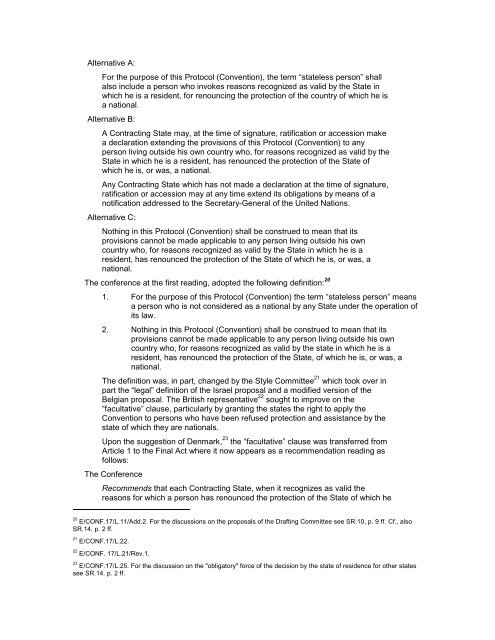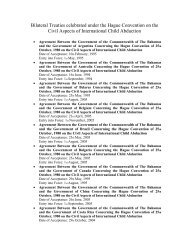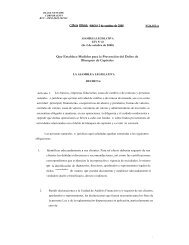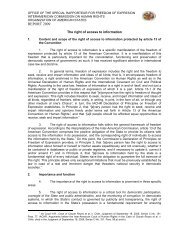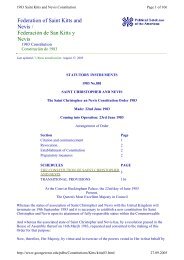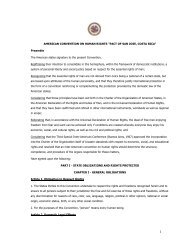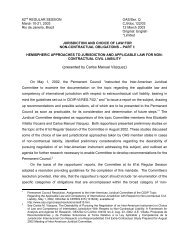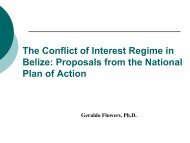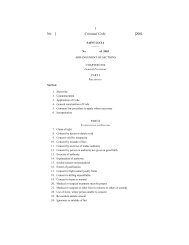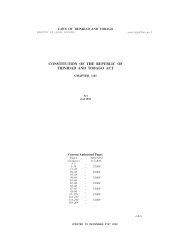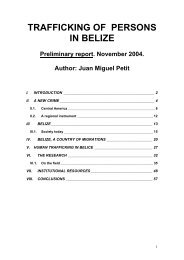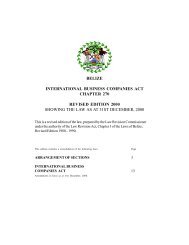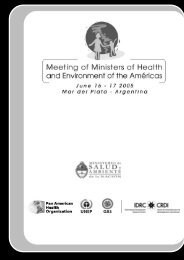CONVENTION RELATING TO THE STATUS OF ... - Refworld
CONVENTION RELATING TO THE STATUS OF ... - Refworld
CONVENTION RELATING TO THE STATUS OF ... - Refworld
You also want an ePaper? Increase the reach of your titles
YUMPU automatically turns print PDFs into web optimized ePapers that Google loves.
Alternative A:<br />
For the purpose of this Protocol (Convention), the term “stateless person” shall<br />
also include a person who invokes reasons recognized as valid by the State in<br />
which he is a resident, for renouncing the protection of the country of which he is<br />
a national.<br />
Alternative B:<br />
A Contracting State may, at the time of signature, ratification or accession make<br />
a declaration extending the provisions of this Protocol (Convention) to any<br />
person living outside his own country who, for reasons recognized as valid by the<br />
State in which he is a resident, has renounced the protection of the State of<br />
which he is, or was, a national.<br />
Any Contracting State which has not made a declaration at the time of signature,<br />
ratification or accession may at any time extend its obligations by means of a<br />
notification addressed to the Secretary-General of the United Nations.<br />
Alternative C:<br />
Nothing in this Protocol (Convention) shall be construed to mean that its<br />
provisions cannot be made applicable to any person living outside his own<br />
country who, for reasons recognized as valid by the State in which he is a<br />
resident, has renounced the protection of the State of which he is, or was, a<br />
national.<br />
The conference at the first reading, adopted the following definition: 20<br />
1. For the purpose of this Protocol (Convention) the term “stateless person” means<br />
a person who is not considered as a national by any State under the operation of<br />
its law.<br />
2. Nothing in this Protocol (Convention) shall be construed to mean that its<br />
provisions cannot be made applicable to any person living outside his own<br />
country who, for reasons recognized as valid by the state in which he is a<br />
resident, has renounced the protection of the State, of which he is, or was, a<br />
national.<br />
The definition was, in part, changed by the Style Committee 21 which took over in<br />
part the “legal” definition of the Israel proposal and a modified version of the<br />
Belgian proposal. The British representative 22 sought to improve on the<br />
“facultative” clause, particularly by granting the states the right to apply the<br />
Convention to persons who have been refused protection and assistance by the<br />
state of which they are nationals.<br />
Upon the suggestion of Denmark, 23 the “facultative” clause was transferred from<br />
Article 1 to the Final Act where it now appears as a recommendation reading as<br />
follows:<br />
The Conference<br />
Recommends that each Contracting State, when it recognizes as valid the<br />
reasons for which a person has renounced the protection of the State of which he<br />
20 E/CONF.17/L.11/Add.2. For the discussions on the proposals of the Drafting Committee see SR.10, p. 9 ff. Cf., also<br />
SR.14, p. 2 ff.<br />
21 E/CONF.17/L.22.<br />
22 E/CONF. 17/L.21/Rev.1.<br />
23 E/CONF.17/L.25. For the discussion on the "obligatory" force of the decision by the state of residence for other states<br />
see SR.14. p. 2 ff.


